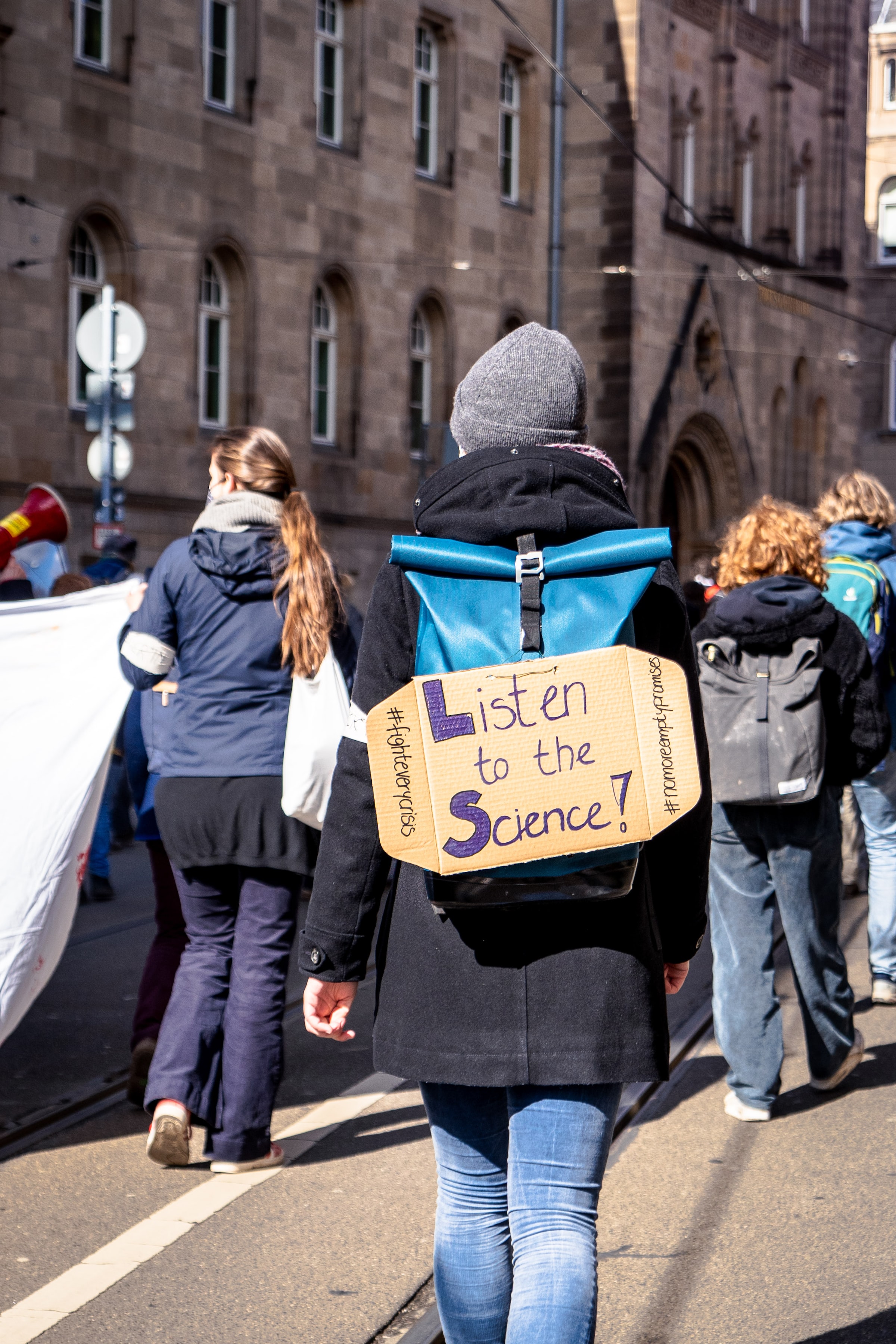Who cares about climate change, how much, and how do they relate to each other?
By Antonio Cabrales.
Based on research with Manu García, David Ramos, and Anxo Sánchez.
“The furnaces of the world are now burning about 2,000,000,000 tons of coal a year. When this is burned, uniting with oxygen, it adds about 7,000,000,000 tons of carbon dioxide to the atmosphere yearly. This tends to make the air a more effective blanket for the earth and to raise its temperature. The effect may be considerable in a few centuries.” This piece of news was published on August 14, 1912, in the Science Notes and News section of the Rodney & Otamatea Times, an Australian newspaper. So, the knowledge about the possibility of anthropogenic climate change is already over a century old. And not only that, but we have also known for a while that the consequences of climate change can be dire. Ellsworth Huntington published a paper in the Quarterly Journal of Economics in 1917 attributing climate change as part of the reason for the fall of the Roman Empire, although in that case, it was not anthropogenic.
Therefore, if the scientific understanding of the causes and consequences of climate change has been with us for at least a century, why haven’t we made enough relevant efforts in a long time? In a recent article with Manu García, David Ramos, and Anxo Sánchez, we provide some data and analysis to think about this problem.
The essential thesis of the article is that social norms about what is the right thing to do in each situation evolve slowly and are transmitted from one group to another through a complex social network of mutual influences. Our work documents how these views have evolved over time in different settings and proposes (and estimates) a simple economic model to quantify these relationships.
The measurement of concerns about climate change follows a methodology proposed by Baker, Bloom, and Davis (2016) to measure economic uncertainty. We first look at a series (Figure 1) with mentions of climate change in the main scientific journals (Science and Nature). We take monthly data from 1995 to 2021 and normalize the series. As you can see, already in the mid-1990s, there was much interest in the question. An interest that presents remarkable stability over time.
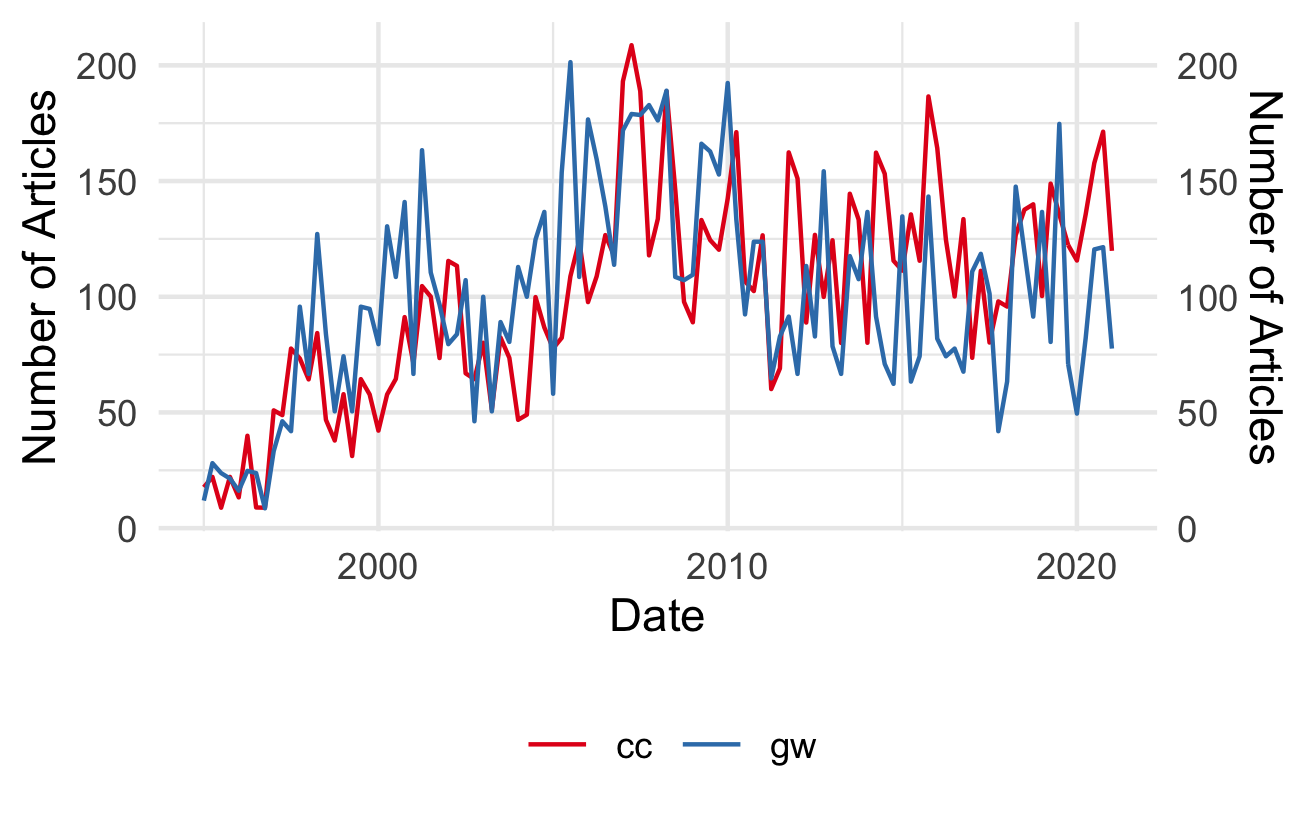
Figure 1: Quarterly Climate Change index for the general interest science journals
The second series we look at (Figure 2) is that of the mentions of climate change in the main news media. To be precise, we collect data for 12 of the most important newspapers in Europe.
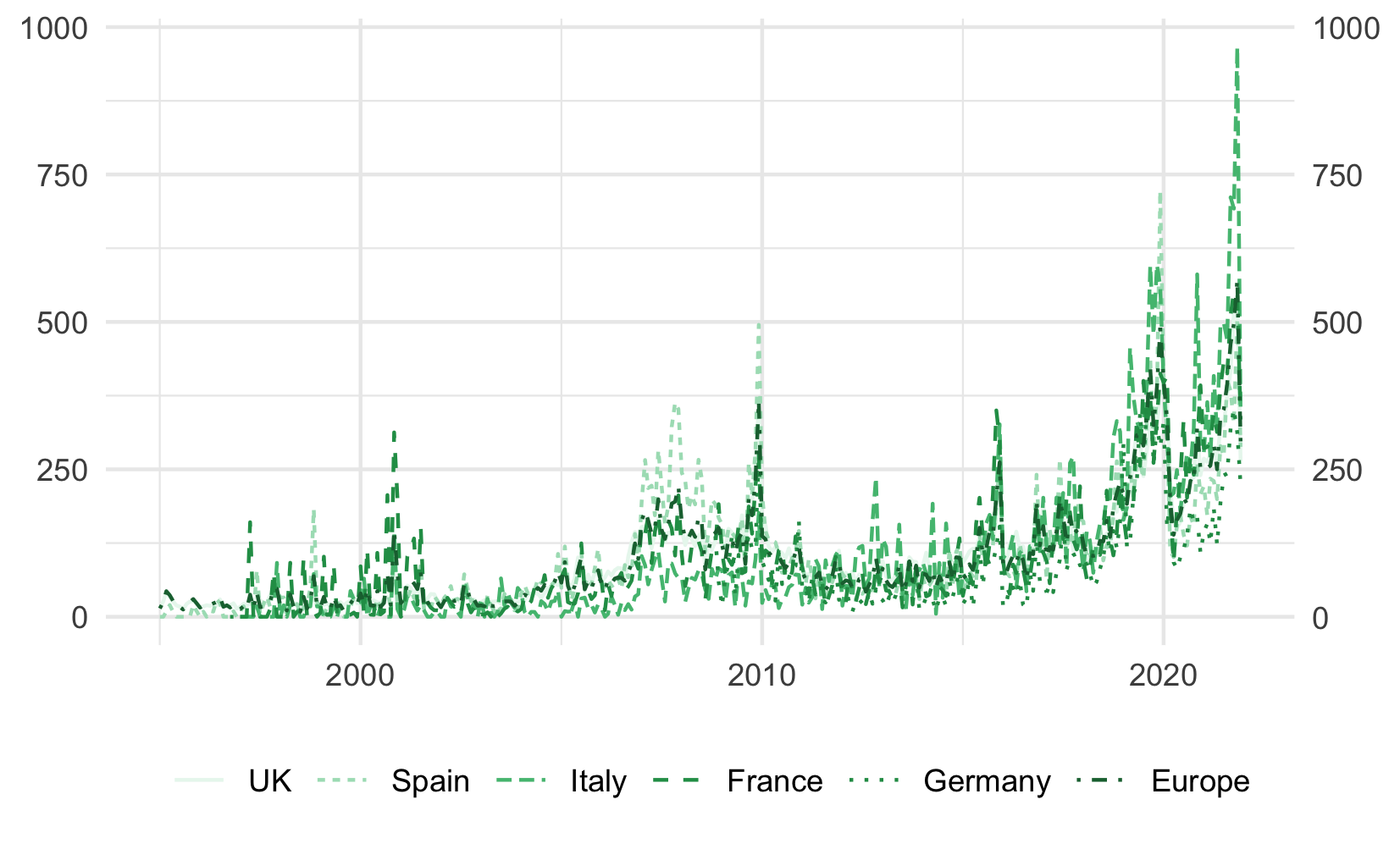
Figure 2: Monthly Climate Change Index for Europe and the USA news media
Something striking about this graph is that despite the accumulated scientific knowledge, the press (our variable that tries to proxy the interest of the general public) is much more volatile and becomes seriously engaged much later. It is only in the middle of the first decade of this century that there was a major surge in mentions of the problem.
Another interesting graph (Figure 3), quite parallel to the previous one, presents for that period the questions asked in the European Parliament that contain the words “climate change.”
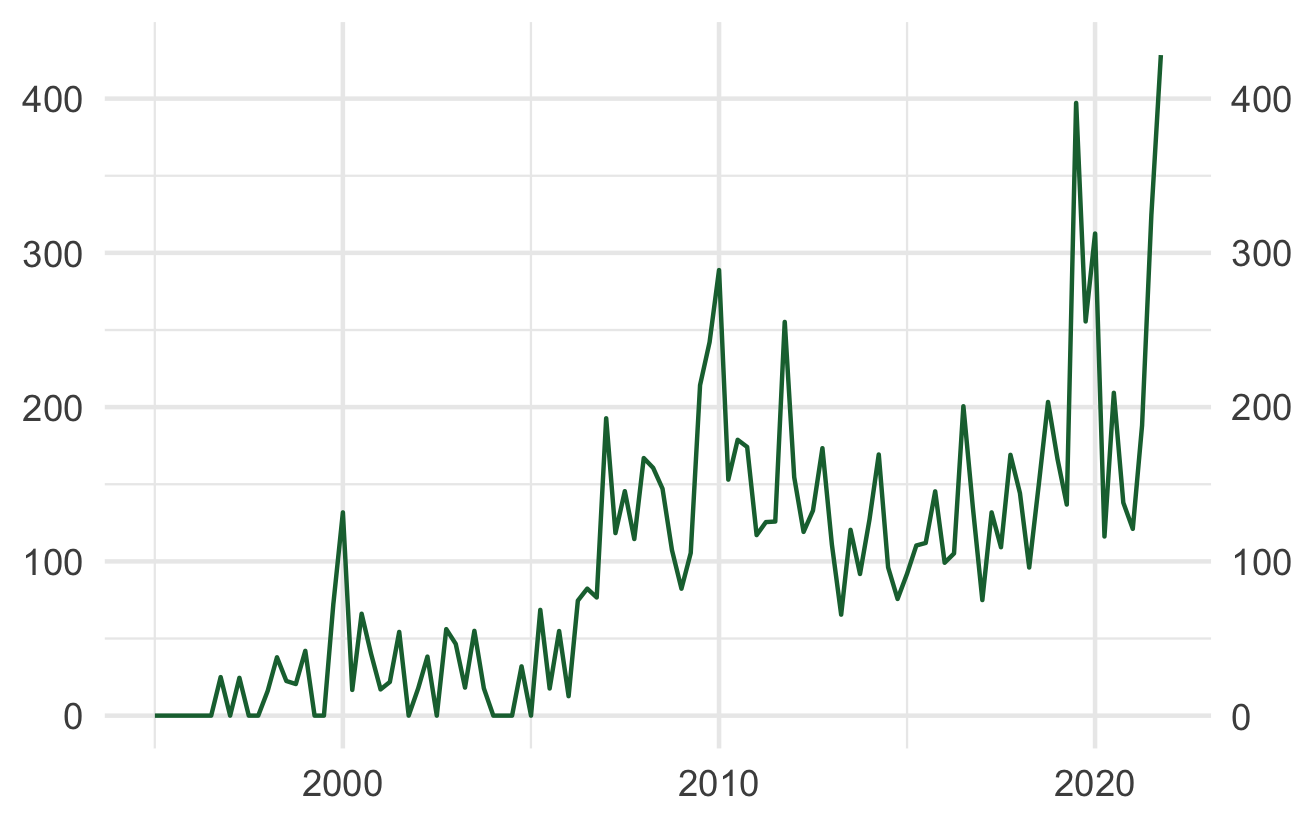
Figure 3: Quarterly Climate Change Index for the European Parliament
As one can easily see, it presents similar characteristics to the one containing newspaper mentions. The EU Parliament wakes up “late” and its interest fluctuates over time.
But at least it seems that the parliament and the press are concerned about climate change. Something more embarrassing happens to us, academic economists. Table 1 of our paper summarizes the articles in the top-5 economics journals (QJE, AER, JPE, Ectrica, REStud) that mention climate change (or global warming) in the title or abstract of articles in this period. And we compare it with other terms, some of which do not seem to have the same importance. The low number (about a dozen) mentions speaks for itself, and not very well, about the interest of the profession’s elite in what is probably the most important problem of our times.
The last graph I will show is somewhat more optimistic. Figure 4 presents the mentions of climate change in the speeches of the presidents of the ECB and those of other central bankers (BIS data). In this case, it is not an index but a percentage.
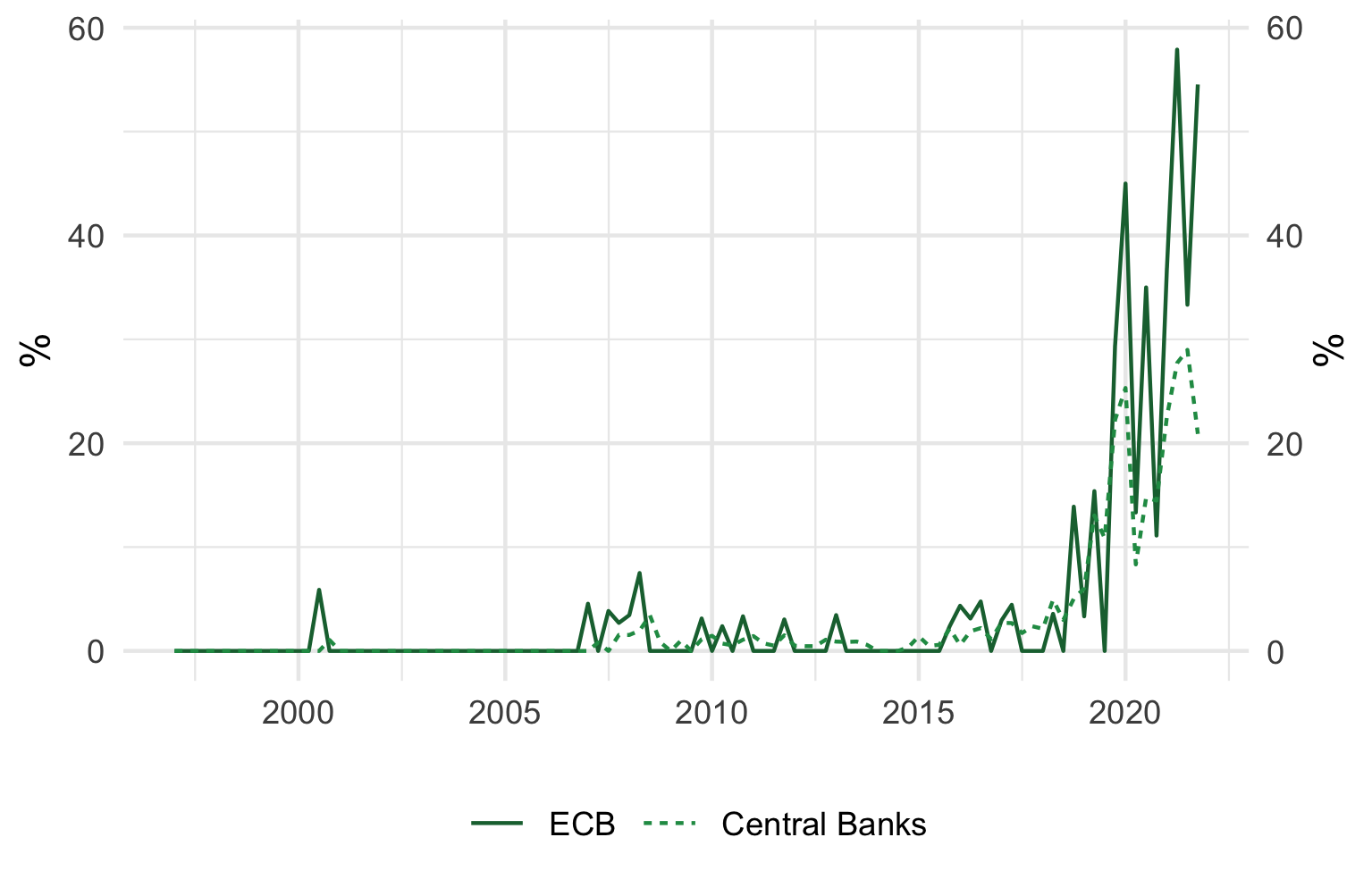
Figure 4: Share of Central Bank Speeches containing the words “Climate Change”
The striking fact here is that although they appear much later, central bankers are very concerned about the problem. And as regulators of the whole financial system, they wield a very significant power to effect change in this domain.
To provide a theoretical framework to connect all these data, we use a model inspired by the work on complex networks by Ballester, Calvó-Armengol, and Zenou (2006). The model assumes that the preferences of the agents have an “idiosyncratic” element but also an element that makes them want to align their actions with those of the “neighbors” in their social network. The model allows us to predict the actions of the agents, which depend on a constant (their idiosyncratic preferences) and observed actions of others (perhaps with a lag). And the parameters of this model can be estimated using a VAR (Vector Auto Regression).
Three of our variables are mentions of the climate in the media, the European Parliament, and scientific journals. We exclude economics journals because there are virtually no mentions, and central banks because they start so late that it is difficult to capture their influence in the model. We also use GDP as an additional control variable.
In general terms, we observe that the media and parliament influence one another. Apart from that, we also find strong interactions with GDP and its fluctuations. Still, this dependence seems to be completely driven by the pandemic crisis, which increased interest in climate change.
Something important is that we cannot find influences of science in the media or parliament. This is a concern, although there is a possibility that the influences are more subtle (non-linear or discontinuous) than our model can capture.
Obviously, much more research is needed on this problem, but we hope our contribution will be useful in giving ideas for future discussion.
Further Reading:
Cabrales, Antonio, Manu García, Ángel Sánchez, David Ramos Muñoz. “The Interactions of Social Norms about Climate Change: Science, Institutions and Economics.” arXiv preprint arXiv:2208.09239 (2022). https://arxiv.org/abs/2208.09239
References:
Baker, Scott R., Nicholas Bloom, and Steven J. Davis, “Measuring Economic Policy Uncertainty*,” The Quarterly Journal of Economics, 07 2016, 131 (4), 1593–1636.
Ballester, Coralio, Antoni Calvo-Armengol, and Yves Zenou, “Who’s who in networks. Wanted: The key player,” Econometrica, 2006, 74 (5), 1403–1417.
Huntington, Ellsworth. “Climatic change and agricultural exhaustion as elements in the fall of Rome.” The Quarterly Journal of Economics 31.2 (1917): 173-208.
About the authors:
Antonio Cabrales is a Professor of the Department of Economics at Universidad Carlos III de Madrid. He works in the economics of networks and mechanism design, learning and evolutionary games, experimental and behavioral economics, and industrial organization.
https://www.eco.uc3m.es/~acabrales/
Manu García is a Ph.D. student in the Economics department at Washington University at St. Louis and a Research Associate at the Federal Reserve Bank at St. Louis. He works on applied economics, and on macroeconomics.
https://economics.wustl.edu/people/manuel-garcia
Ángel (Anxo) Sánchez is a Professor in the Department of Mathematics at Universidad Carlos III de Madrid. His research deals mostly with the applications of the physics of complex systems to social and biological sciences; he has contributed to the advancement of different fields, from economics to condensed matter physics through ecology and theoretical computer science.
David Ramos Muñoz is an Associate Professor at the Department of Private Law at Universidad Carlos III de Madrid. He has developed this research mostly in the fields of Financial Law, and Contract law and Arbitration.
https://researchportal.uc3m.es/display/inv37620

